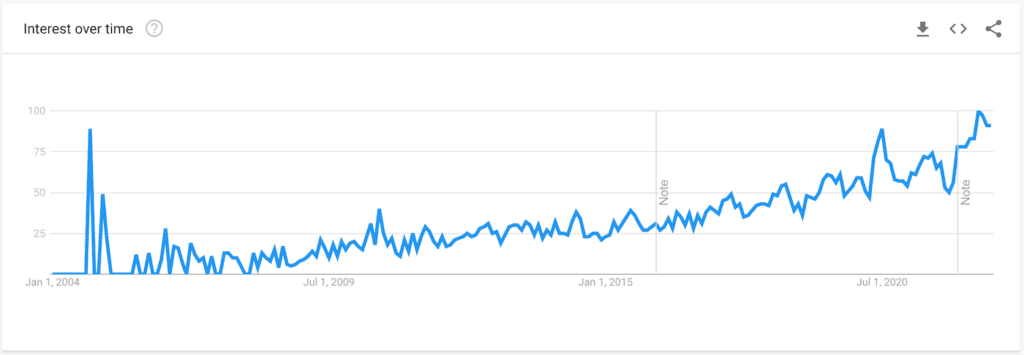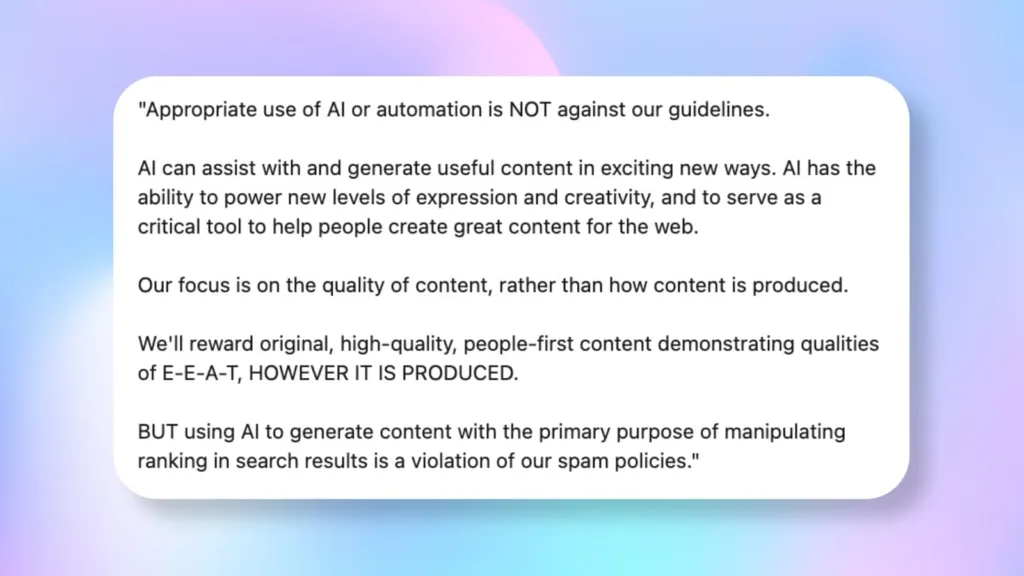Last updated on June 9, 2023
If you were to ask me this question 4 years ago, I’d reject it as just another passing fad. But ever since GPT-3 released 2 years ago, it changed the game.
This is a serious question that needs to be asked and answered today. Will AI really replace copywriters?
History
I’ve been in SaaS marketing for 10 years and led a bunch of content teams. I’ve been a writer, editor, content team manager, Head of Marketing and now a solopreneur.
The number of content writers in the market have exploded in the last 5 years. People are quitting their traditional professions to become content writers. I’ve even seen developers quitting their jobs and become copywriters!

Naturally, as a profession gains more popularity, all types of people enter the industry over time (including the bad actors). Today, you have content writers across various price points, expertise, writing quality, demand, industry and geography. Writers charge anywhere from $10 to $2000 for an article (upper limit is undefined tbh).
Enter GPT-3 & birth of “AI writers”
In May 2020, GPT-3 came out in beta and people were impressed by how well it mimicked human copywriters. For the first time, you had instances where you couldn’t even tell the difference between content written by humans and AI.
A lot of SaaS companies took advantage of this opportunity. Many AI writing tools were born after it and quickly drove millions in revenue for themselves. For example, an industry leader Copy AI acquired 1 million+ users within 2 years of launching.
As AI writers became popular:
- Writers started getting worried about their careers.
- Marketers either loved AI writing tools or despised them.
- Early stage founders started cutting writing costs in favor of adopting AI writing tools to cut costs.
- Blackhat bloggers started using it to create hundreds of articles every month and quickly grow their organic traffic.
The industry split into two sides – pro-AI and against-AI. You had to choose a side. It was either black or white.
- You either love AI or hate AI.
- AI writers were a bad thing or a good thing for the industry.
- AI will either replace copywriters or they will not.
We’re here now.
What if I told you that there’s a big grey area in between hating & loving AI?
What if I told you that AI writers will positively impact the industry in some ways and negatively impact the industry in others?
Here are four big changes to be prepared for:
1. Treat AI tools as AI writing assistants, not AI writers
Firstly, let’s stop calling these tools as AI writers. They’re not writers, but writing assistants. There’s a difference.
A writing assistant assists you with writing copy faster. For example, it helps write a blog post in 4 hours than 16 hours. While a writer helps you write the copy end to end.
Not a single tool in the AI writing market can write copy end to end despite the seamless writing workflows, great copy and everything else. Although Copy AI and Jasper AI come pretty close.
Instead, the right approach is to treat these AI writing tools as writing assistants. They’re writing interns at our service to help us get a first draft quickly so we can spend bulk of our time on refining the important bits of the article. So we can spend time to make content more helpful for end users.
In fact, Google even endorsed this approach in their recent statement on the use of AI in content production: “AI can assist with and generate useful content in exciting new ways. We’ll reward high-quality content, however it is produced.”
However, they did point out that “Using AI to generate content with the primary purpose of manipulating ranking in search results is a violation of our spam policies.”
Here’s the abridged version of their statement:

In simple words, those that treat AI writing tools as AI writing assistants and focus on creating helpful content for users will come out on top with their content marketing and SEO efforts. Those that use AI writing tools as AI writers will be penalized (as is evident in Google’s recent Helpful Content update).
2. AI writing assistants will replace low quality writers
In today’s world, you can find writers on Upwork, Fiverr and other marketplaces/agencies that can deliver articles for under <$10. But that content is very poor quality. It’s more popularly know as “SEO content”.
AI writing assistants are a threat to them for sure. If they don’t elevate their game and focusing on creating helpful content for users, AI writing assistants will eat up their revenue share.
Founders are realising the cost advantage of working with AI writers. When an AI writing assistant can produce better content than those writers at 1/10th or 1/100th the cost, why stick around with these low quality writers?
In my opinion, this is a good thing. It elevates the industry’s content quality standards.
3. AI writing assistants will become a competitive advantage for most freelance writers
I have a prediction to make here: AI writing assistants will bring down writing rates across the board. Not drastically, but to a more sustainable level for businesses.
AI writing assistants definitely reduce time to get to the first draft and at a significant low cost. What would take a writer 16 hours to create an article, now takes 6-8 hours if written with the help of an AI writing assistant. It also helps eliminate writer’s block (especially if you pair it up with a BrainFM track in the background) for writers who write a lot of content.
Freelance or fractional content writers could incorporate AI writing assistants in their writing workflow to deliver content faster to clients, take up more writing clients and deliver higher quality content. Just like how they incorporated tools like Grammarly (proof read copy to clients), Surfer SEO (better results in search with SEO optimized copy) etc. to deliver more value to their clients.
For example, a writer charges $750 for an article and delivers 3 articles per week is making $2250 per week without using an AI writing assistant.
That same writer could charge $500 for an article, deliver 6 articles per week and make $3000 per week while using an AI writing assistant.
That’s a competitive advantage which is win-win for all parties.
Related Reading: Is Hello Bonsai Worth Buying?
4. AI writing assistants can never match up to human creativity
Yes, GPT-3 is impressive and a great leap forward. But it can never replace human creativity. It just imitates what’s already been written. AI can’t fact check, can’t think on it’s own or even have full data of the most current events.
If you’ve ever worked with an AI writing assistant, you’ll know that you can never publish a piece produced as is. No one trusts AI content enough yet to blindly publish it. There are factual errors, repetitions, irrelevant content etc. which makes it impossible to fully rely on it.
A human always needs to review the output. In fact, to get any kind of decent output from an AI writing assistant, we need to feed the AI writing assistants a lot of instructions and input to get something legible from it.
So IMO it’s unlikely right now that AI writing assistants can compete with human creativity. But they have made our lives easier and are a competitive advantage for those who incorporate it.
So finally… will AI replace copywriters?
For some, yes it will. I’m referring to low quality writers.
For most, it will be a competitive advantage that will fit into our writing workflow and aid us. It’s time to change with the times and embrace AI content.

